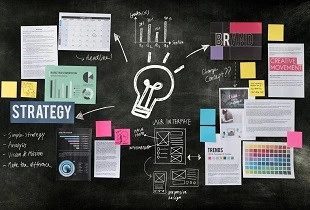The ‘way of working’ – more than the rules!
How to have an integrated approach to ensure regulations are known understood and complied with by all employees in regulated industries
Add bookmark
The feedback loop to ensure that all information is being read and understood by the employees is an essential part of sharing the ‘way of working’. Find information here about this confirmation management capability of the ARIS platform.
Rugby is more than just a sport; for many, it is a real passion and a way of life. The Haka before every game, a ceremonial Māori dance performed by the All Blacks, New Zealand’s national rugby union team, is legendary. To the casual viewer, however, the rules of rugby union may seem very complex (more than 150 pages), but necessary to create the framework for an exciting, challenging competition with the highest possible respect and mutual fairness in the "hooligan's game played by gentlemen".
Within the rules of the game, an interesting rule notes: “It is the responsibility of those who coach or teach the game to ensure that players are prepared to comply with the laws, to play fairly and practice safe conduct.”
Applied to business, it is also true that compliance with legal regulations is the essential prerequisite for being able to offer products and services. Especially in regulated industries, such as the financial, energy, telecommunications, pharmaceutical and medicine sectors, where it is essential to ensure the relevant regulations are understood and complied with by all employees. A large number of aspects are described in international standards that also form the basis for audits:
- Quality (ISO 9001)
- Information security management, data protection (ISO 27001, GDPR)
- Business continuity management (ISO 22301)
- Environmental management (ISO 14001)
Many companies have recognized that there are a number of advantages to not establishing a separate management system for each of these regulations, but to follow an integrated approach with an integrated management system for example. This is valid because many elements of the different standards overlap and they often refer to the same assets of the company such as processes, data, risks, IT systems and responsibilities.
On the other hand, successful companies extend their management system to a description of the 'way of working'. Along with the duty, there is also the freestyle and rules, with policies and controls supplemented by aspects that help employees fulfill their tasks as efficiently as possible. For example, digitized work or process instructions and step-by-step guides provide a knowledge base to distribute know-how among employees and provide support for the daily work such as safety procedures, environmental checklists and inspection templates. Every business needs a playbook to manage recurring workflows fast and easy for teams everywhere and an integrated management system is the perfect basis for new employees, for example, to quickly familiarize themselves with their tasks.
In addition to the purely passive provision of information, it is particularly relevant for management to have an overview of the entire governance process: from approval of new guidelines, through rollout to all affected employees, to electronic signatures upon notification. This automated workflow is particularly important for changes; it is about notifying stakeholders when processes change and subsequent confirmation of compliance with updated work instructions.
As in rugby, the basic prerequisite for success in business is compliance with the rules of the game, the 'license to operate'. But beyond that, it is also a question of giving employees as many degrees of freedom as possible to react flexibly to customer requirements. The emphasis is on not just command and control style, but rather in a sense of empowering employees holding themselves accountable to their own high standards of work performance. Know and observe the rules, but put your own competitive advantage on top. So what is your corporate Haka?


































































